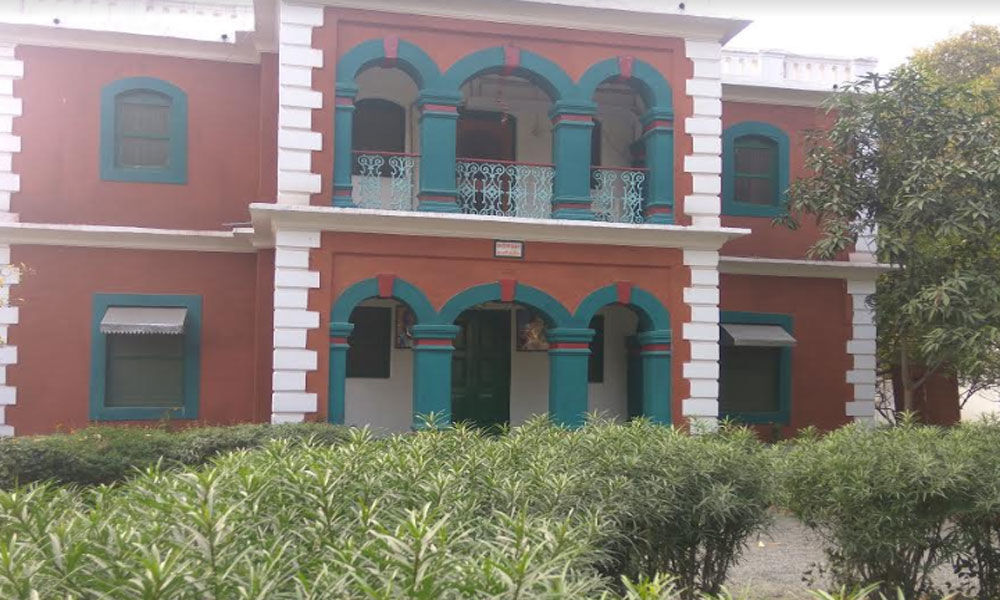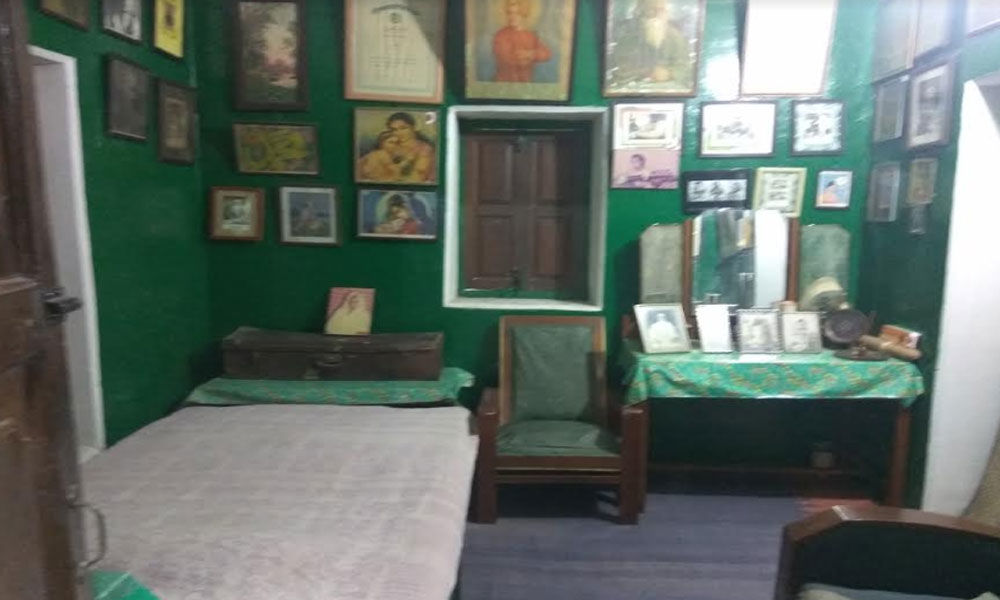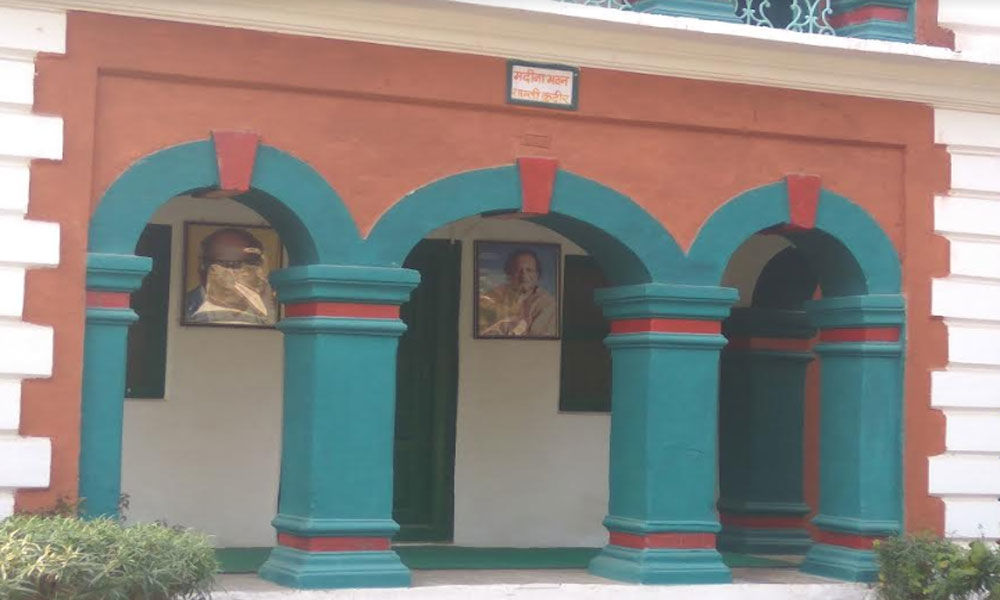Live
- ‘Get Set, Grow Summit 2024’ Focuses on Digital Detox for Families
- Stokes motivates his team to put in extra effort, says England pacer Potts
- From overcoming setbacks to leading India in U19 Women’s Asia Cup, Niki Prasad's amazing journey
- Driving Enterprise Security: Inside Venkata Reddy Thummala’s Leadership Journey
- Constitution debate: PM Modi hails 'Nari Shakti'; makes strong pitch for 'United Bharat’
- Abhijeet Bhardwaj: Revolutionizing Enterprise Analytics with Innovation and Expertise
- Bihar: Inquiry initiated against principal who went to buy veggies during school hours
- Press Sri Lankan Prez for release of Indian fishermen: TN Cong MP to EAM Jaishankar
- TN: DMK postpones executive meet due to heavy rains & Parliament session
- Porous silicon oxide electrodes can fix durability issues in batteries: Researchers
Just In
Story on Allauddin Khan sahib's house of Maihar Gharana from Lalita Iyer

While Maihar is home to one of the 52 Shakthi Peethams and home to Sharada Mai's temple on the Trikuta mountains here, it is also home to the famous Maihar Gharana, a school for a particular style of Hindustani classical music. This school was formed by Allaudin Khan, the famous sarod player and teacher to Ravi Shankar, Nikhil Banerjee and his own daughter late Annapurna Devi, the first wife of Ravi Shankar.
The house where Baba Allauddin Khan lived lies on a quiet broad street, with a gate which can be opened by anyone. While there are two friendly keepers, the two dogs were the loudest even as their tails waged away. Luckily they were tied. This is a public place but that day there were no visitors.
Maihar is a small town, though there is the Shakthi Peetham and then there is Allauddin Khan Sahib's house, but while the temple is crowded, this here tourist spot will be sought after only by a music aficionado.
The house has been maintained well and as you walk in, a calm descends upon you as you get to see where the legendary Allauddin Khan sahib lived and taught his students.
His room, with the bed he slept on and the chair he sat on and all the photos lining the walls of this room are a gateway to some memories. There is a hall with the walls lined with all the awards he had received from the government, with sagging sofas lined up. The house is quaint and though does not look very large, leads to a central hall, large enough for quite a few students and apparently Khan sahib would sit there and continuously goad the students into playing their best. In fact quite a few students left in a week or ten days, according to reports.
There are many tales of his strictness including one when he would wake up a lazy student by pouring cold water on him in the middle of winter. But the tradition continues and Khan Sahib's youngest son Rajesh Khan continues to train students at the same home. The list of famous musicians is huge with prominent names.
History has it that Allauddin Khan ran away from home at the tender age of eight, since he was not allowed to play with the musical instruments in his own home.
He soon was a member of group of musicians travelling from place to place and here he learned to play various instruments including the
tabla, dhol, and pakhawaj, and he was also comfortable with wind instruments like the clarinet, cornet, and trumpet. After being with the group for six years, Khan then reached Calcutta and was an apprentice to a Bengali singer, Nulo Gopal. He learnt the traditional style of music for seven years and then accepted a position as tabla player in the orchestra of the Star Theater, where he was mentored by conductor Robert Lobo, who introduced him to the Western classical music tradition.
Once he heard Ustad Ahmad Ali, a sarod player in the court of Raja Jagat Kishore and after much seeking, became his student for four years, but Khan's playing abilities became better than his guru and so Khan was forced to play solo for the first time in Rampur, in the court of Nawab of Rampur.
There he convinced the most important musician in Rampur, Veena player Wazir Khan, to become his guru. Wazir Khan was a descendent of Tansen's daughter's family, who were veena players and known as Beenkars. Thus, Maihar Gharana is often called 'Senia Maihar Gharana' because of the learnings from both the schools of music.
Khan learnt from him for two years and then had to return home to be with his family, but only after Wazir Khan promised that he would continue to teach Khan. Finally he received his Guru's blessings when Wazir Khan was in his death bed. After that Khan Sahib was on his own.
He was the chief musician at the court of the Maharajah of Maihar from 1918 and then became the principal of the Maihar College of Music. As per some reports, many children were orphaned post an epidemic in 1920 and Baba, as Allauddin Khan was called, adopted two dozen children and taught them music and formed a band. The Maihar band was an innovation of Baba, and combined Hindustani classical music with folk and western music and used a range of both Indian and western instruments from the flute to the clarinet and the sitar to the cello. Baba led the band with his violin. Today the Maihar band is in its fifth generation.
In 1952, he was made a Fellow of the Sangeet Natak Akademi (National Academy of Performing Arts). Six years later, he received the Padma Bhusan in 1958 and the Padma Vibhushan in 1971. This Gharana follows the guru-shishya parampara and has produced maestros in sitar, sarod, surbahar, flute and violin.
Baba Allauddin Khan also invented musical instruments like the nal-tarang, jal-tarang and chandra-sarang, among many others and ragas like Hemant and Bhuvaneshwari.
When in Maihar, Baba would climb a thousand steps every day to go up to the famous shrine of Sharada Devi, a manifestation of Durga, and play before the deity.
Huge spaces are kept clean and the whole place is well maintained. At the gate, on the left hand side is a neat little building. It is the tomb for Acharya Baba Allauddin Khan sahib and Mata Shrimati Marina Khatum. Baba lived between October 1862 and died September 1972, leaving behind melodious memories.

© 2024 Hyderabad Media House Limited/The Hans India. All rights reserved. Powered by hocalwire.com









